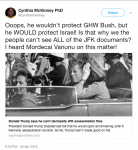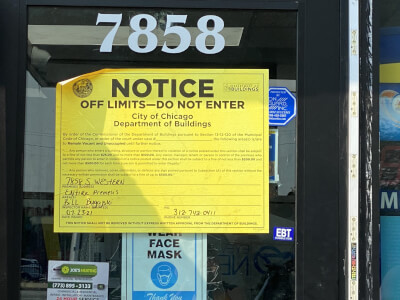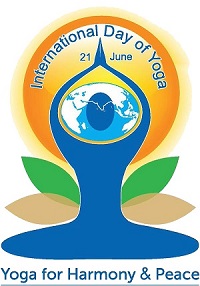Ustar Erdoğan, Stronger Than Ever
By Abdennour Toumi

As tensions soared at the polls, at least eight people were killed in clashes between rival groups. In the southern province of Hatay two people were killed and nine more injured after a fight broke out between rival candidates for village and neighborhood committee chiefs (Mukhar).
In the southeastern province of Şanliurfa, six people were killed in a similar incident in the Hilvan district and several more seriously injured, according to police sources.
The first partial results, published early yesterday evening, indeed gave the AKP about 46% of valid votes, which is 48% at the national level, according to the high committee for election.
The final results have not been officially declared yet because of some legal dispute over ballots in the capital and some Kurdish provinces with write-in votes for Batman. However, the trend indicates a clear and indisputable victory for the AKP. As a result the party obtained 48 of the 81 provinces in a local election that has all the earmarks of a national election.
Certainly this election turned into a referendum on Premier Erdoğan and his party, but all the analysts agreed that the AKP’s victory is definitely Erdoğan’s.
The dynamic of this election distinctly qualifies it as historically important because the result is going to change Turkey’s political landscape. Furthermore, it promises change in the political system from parliamentarian to presidential with a potential president whose charisma surpasses even that of the founder of the Turkish Republic.
At this point Premier Erdoğan is driving his opponents crazy, in particular the CHP (the Republican Secularist Party), and its liberal, westernized elite, bourgeois allies and voters.
Twenty-six parties participated in this election, but only four main parliamentarian parties won in the provinces and in big and medium-sized cities. These parties included the AKP, CHP, MHP and the nationalist Kurdish BDP (Peace and Democracy Party).
The AKP took the two biggest cities, Istanbul and Ankara, made some progress in the third largest city of Izmir, a bastion province for the CHP. Together these cities add up to almost all of the Turkish population. Beyond its symbolic significance, the voters of the AKP confirm their support for the socio-economic policies and foreign policy of Erdoğan.

In confirmation of this victory-trend, Premier Erdoğan and his party managed to challenge the street, the secularists, the dismantled opposition, and to some extent the parallel “state” controlled by the powerful religious scholar, Hoça Gülen, who resides in the United States. His movement preaches sufi-traditional Islam and operates schools world-wide, many of them in the U.S. and Canada. He also plays an influential role at the nerve center of the Turkish administration and media.
Yet a personal dispute between Erdoğan and Gülen has developed into a proxy political discord, on the one hand between Premier Erdoğan and his opponents who describe him as a authoritarian, and others as an Ottoman Sultan/dictator, pushing Turkish politics into a crony system like so many Arab regimes and setting up the party’s structure along an oligarchic paradigm.
In power since 2002, this neo-Islamist has managed to become a respectable leader and now will have free reign to force fate to open the door to the presidential palace in August, 2014. But to achieve that, he will have to amend the Constitution to transform the honorary presidential position, currently held by President Abdullah Gül, into a valid head-of-state with full attributions.
In the meantime, Premier Erdoğan can always keep his Prime Minister’s post until the parliamentarian election in 2015. One thing’s for sure: this 60-year-old man of power has already been ruling Turkey for twelve years and is determined to couple his economic successes with his personal ambition to be the “sultan” or even the “caliph” as he is seen by his adversaries.
Erdoğan, the son of a sailor, has managed to become one of the world’s most influential leaders, reshaping Turkey’s political culture inherited from Mustafa Kemal Attatürk. This has created anger if not hatred among the Attatürk nostalgics and the youth, “lefty” and young, well-educated Kurd militants.

interestingly enough, Premier Erdoğan has manage to break another taboo. With his vision and bold foreign policy determinants he has set up a model of viable, political Islam, eve though his party doesn’t consider itself Islamist as presented in the media and academic milieus, and has show it can deal with modernity.
Turkey’s democracy seems healthy, although skeptical Turks and Kurds believe the country is heading south under the AKParty which is leaning East but clearly not turning a cold shoulder to the West. The Premier and his party still have a solid majority across the conservative lower and rising middle classes who enjoy economic growth and geopolitical rehabilitation and are far from seeking empirical nostalgia.

Neither the CHP, Hoça Gülen’s movement, nor the Kurdish nationalists party, the BDP, are a threat to the AKParty. On the contrary, the Premier in his victory speech called for a tough and serious opposition, promising to punish those who were behind the leak scandals. Thus Turkey becomes a one-multi-party system. So the opposition must review its electoral strategy and program for the next electoral challenges.
In sum, the secularist scholars and journalists were hoping for a Turkish Spring in view of the pre-election scandals and the Premier’s bold decision on banning social media. Instead they were wiped out by Sunday’s political Tsunami, and Ustar (master) Erdoğan just got stronger than ever.
(Photos courtesy of Abdennour Toumi)
Related articles


- The Israeli-Palestinian Conflict: Is the Neither-Peace-nor-Security As-sumption Dominating Again? - June 7, 2021
- Algeria: “I Can See Clearly Now” - August 5, 2019
- Majesty Mohammed VI and General Gaïd Salah Tear Down This Wall! - July 29, 2019






















